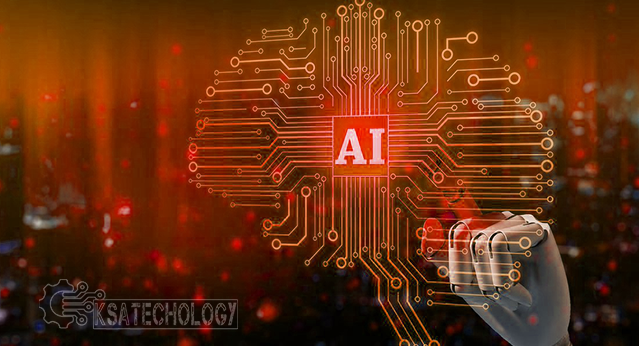Technology’s Evolution with Artificial Intelligence
Technology’s Evolution with Artificial Intelligence In the contemporary landscape, technology and artificial intelligence (AI) are inseparable bedfellows, advancing hand in hand to redefine industries, societal norms, and human capabilities. Their relationship is not one of dominance but of mutual enhancement, propelling each other toward unprecedented realms of innovation and efficiency.
The Evolution of Technology and AI
Technology has undergone a rapid evolution over decades, encompassing diverse fields such as computing, communication, and automation. From the emergence of the first computers to the current era of interconnected devices and smart systems, the trajectory has been marked by constant innovation and integration.
Simultaneously, AI has transitioned from a theoretical concept to a practical reality. Early AI models laid the groundwork, but recent advancements, especially in machine learning and neural networks, have unleashed unparalleled potential. AI algorithms now power various applications, from personal assistants to complex predictive analytics and autonomous vehicles.
Synergy and Integration
The convergence of technology and AI has been transformative. Through integration, technologies have become smarter, more adaptable, and capable of autonomous decision-making. For instance, machine learning algorithms optimize processes, enhancing efficiency and accuracy in tasks ranging from data analysis to healthcare diagnostics.
Tech Key Programming Languages Shaping the Future
Automation, once a futuristic concept, is now a reality. AI-driven automation streamlines workflows, augmenting human efforts in industries like manufacturing, logistics, and finance. Smart systems leverage AI to learn and adapt, minimizing errors and optimizing operations in real time.
Human-Machine Collaboration
Contrary to fears of job displacement, the relationship between technology and AI has largely complemented human capabilities. Instead of replacing humans, AI augments our skills, allowing us to focus on higher-order tasks that require creativity, emotional intelligence, and critical thinking.
In healthcare, AI aids doctors in diagnosis and treatment planning, reducing error rates and enabling more personalized care. Similarly, in education, AI-powered platforms facilitate personalized learning experiences, catering to individual student needs and fostering better educational outcomes.
Ethical Considerations and Challenges
As technology and AI continue to advance, ethical considerations and challenges come to the fore. Concerns about data privacy, algorithmic bias, and the societal impact of automation require vigilant attention. Ensuring responsible AI development involves transparent algorithms, diverse data sets, and ethical frameworks guiding AI applications.
The Evolution of Mobile Technology
Moreover, the potential for job displacement due to automation raises questions about retraining the workforce for new skill sets and ensuring equitable access to opportunities in the AI-driven economy. Balancing technological progress with societal well-being demands a holistic approach that prioritizes ethical standards and human-centric values.
The Future Landscape
The trajectory of technology and AI intertwines with endless possibilities. From the integration of AI into edge computing and the Internet of Things (IoT) to advancements in natural language processing and quantum computing, the future promises further evolution and innovation.
Humanity stands at the brink of a new era, where technology and AI collaborate symbiotically, amplifying human potential and addressing global challenges. The fusion of human creativity and AI’s computational prowess holds the key to unlocking breakthroughs in healthcare, sustainability, and beyond.
The relationship between technology and artificial intelligence is not one of competition but of collaboration, where each empowers the other to reach greater heights. As we navigate this dynamic landscape, ethical considerations, human-centric values, and responsible innovation must guide the evolution of this partnership. Together, technology and AI hold the promise of a future where innovation serves humanity’s greater good, reshaping industries and enhancing lives in ways previously unimaginable.




Leave a Reply